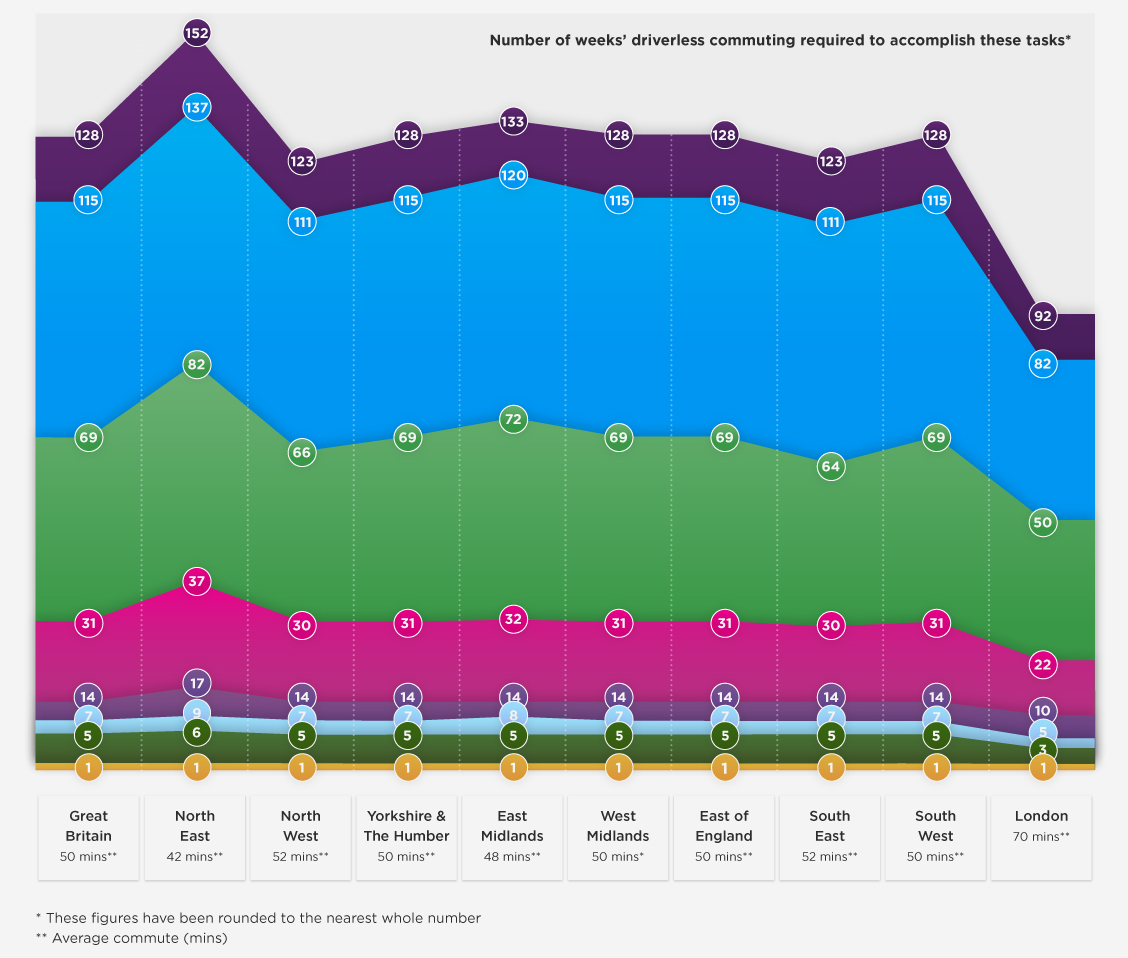How will our lives change when driverless cars hit the streets? Well, the big talking point is safety. With no human error, the roads will be safer, by up to 90 per cent apparently. Another big talking point however is time. Surely if you are sat in a car, and not driving, you will have time to do other things.
That has been the thinking of moneysupermarket.com, who has been looking at the average commute times for people all around the UK and suggesting what they could be doing instead of focussing on brake lights, traffic lights and speed traps.
Currently, driverless cars are still in their infancy, so legislation dictates that a qualified driver must be prepared to take the wheel in case of a malfunction or emergency. So that rules out painting, texting… and anything else really.
But with driverless cars evolving at a rapid rate – and with autonomous motoring expected to be the chief means of transport by the year 2030 – it may just be a matter of time until driverless cars become faultless and motorists are free to roam around their vehicles and engage in recreational activities.
So how much time could driverless cars save us? And what could we do with all that free time?
How Much Time is Wasted on Your Commute?
Research by moneysupermarket suggests that the average UK commuter spends 50 minutes a day travelling back and forth to work. That equates to just over four hours a week or 18 hours a month.
Journey time fluctuates depending on where you live in the UK, with London commuters getting the worst of it, apparently travelling an average of around 70 minutes a day.
What Can You Do With All That Spare Time?
Of course, you could revel in that extra time and stare out the car window and enjoy the scenery. Or, you could do something fun instead.
Moneysupermarket reckons that with just one week of driverless commuting, you could finish your Christmas shopping. You could then move onto learning the ukulele, which would take you around five weeks. Or if you are particularly keen about computers, you could learn to code, which would take you around 30 weeks.
And if you’ve always wanted to learn another language, you could do so in just 115 weeks.
Check out Moneysupermarket’s graph below:

Want to know more about driverless cars? Read our article about where manufacturers are up top with driverless cars?



